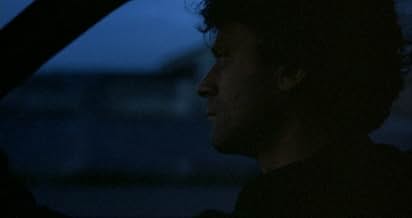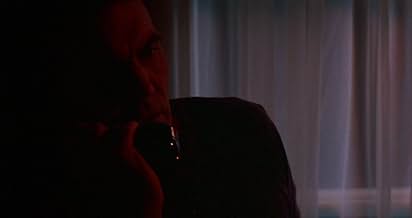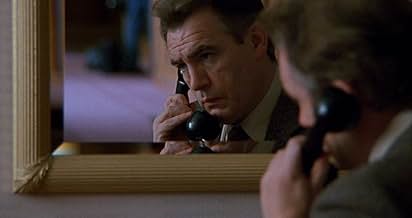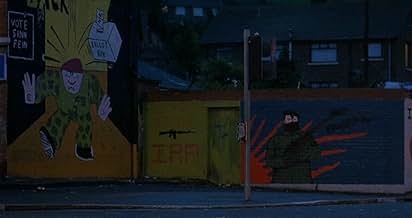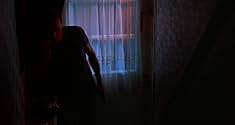IMDb RATING
6.9/10
4.8K
YOUR RATING
When an American human rights lawyer is assassinated in Belfast, it remains for the man's girlfriend, as well as a tough, no nonsense, police detective to find the truth.When an American human rights lawyer is assassinated in Belfast, it remains for the man's girlfriend, as well as a tough, no nonsense, police detective to find the truth.When an American human rights lawyer is assassinated in Belfast, it remains for the man's girlfriend, as well as a tough, no nonsense, police detective to find the truth.
- Awards
- 2 wins & 3 nominations total
- Director
- Writer
- All cast & crew
- Production, box office & more at IMDbPro
Storyline
Did you know
- TriviaThe 'Six Irishmen,' mentioned by Sir Robert Neil of MI5 (with politician Alec Nevin) to Kerrigan is in reference to the 'Birmingham Six.' In 1974 the pub Tavern In The Town and Mulberry Bush, in Birmingham England, was bombed, killing 21 persons and injuring 182 people. The police picked up the nearest six Irishmen and subjected them to 'in-depth interrogation' to obtain false confessions. Patrick Hill, Gerard Hunter, Richard McIlkenny, William Power, John Walker and Hugh Callaghan all served 16 horrific years in jail until the convictions were overturned in 1991. Hugh Callaghan details his ordeal in the book, *Cruel Fate,* co-authored with Sally Mulready in 1994-1995. The movie In the Name of the Father (1993), was based on the Guildford Four, who were similarly jailed using false confessions, along with members of their extended family living in London. That's how the Brits induced Gerry Conlon, Daniel Day-Lewis' character, to confess, by throwing his father, aunts, uncles, and cousins in jail, too. Members of the Guildford Four ordeal were released in 1989 and 1991, where illegal police tactics and hidden evidence were brought to light. The appeals trials of the Guildford Four paved the way for the release of the Birmingham Six, who were in jail longer, and their pleas for appeals were ignored, and never heard until after the Guildford Four / Conlon Family convictions were finally thrown out. All of the innocent Birmingham Six and Guildford Four were still in jail at the time this movie was released.
- Quotes
Sir Robert Neil: You know Ireland can be a wonderful place... if it wasn't for the Irish!
- SoundtracksJoe McDonnell
Written by Brian Warfield
Re-arranged by Ron Kavana
Performed by Ron Kavana and Terry Woods
Published by Skin Music
Featured review
Whooaa! Slow down, sol1218 from Brooklyn NY.
The political scene in the U.K. looked like this: Edward Heath, bachelor leader of the Conservatives, won the election in 1970. He took Britain into the then Common Market in 1973, but called an election in February 1974 when the miners forced him to declare a three-day week.
The Tory slogan for the election was: Who governs Britain? The result was confused, but the message was fairly clear: Not you, matey. Labour under Harold Wilson took office with a slim majority. Wilson called a second election in October, which he won narrowly, increasing his majority slightly.
He held a referendum on the Common Market in 1975, which he won by sidelining the extremists of both Left and Right. He ruled until 1976 when he resigned from politics, for reasons which were obscure at the time, but probably because he had been diagnosed with Parkinson's. It is certainly true that the Right plotted endlessly against him.
Jim Callaghan, who had been Chancellor, Home Secretary and Foreign Secretary, took over as P.M. and called an election after his full five-year term. (In the U.K. governments normally call elections after four years.) In fact Callaghan was forced to do so because of a move by the Scottish Nationalists. Had he called the election just a year earlier, he stood a good chance of winning, say many pundits.
Meanwhile, the Conservatives had deposed Edward Heath who had lost them two elections, and Maggie Thatcher replaced him as leader. She swept to power in 1979, and as we all know, won the next two elections.
Economic chaos was the watchword of the day and there were many strikes. The situation in Northern Ireland, which had started simmering with the Civil Rights movement of 1968, gradually deteriorated. The assassinated politician of the film whose name is Nevin, may well represent Airey Neave, a war hero who had escaped from the high-security Colditz Castle, a German-speaking lawyer who had attended the Nuremberg Trials and a hardline Conservative with military and security connections, who was a close adviser of Thatcher. He was blown up outside the House of Commons on March 30, 1979, by the INLA a few weeks before the election.
Ken Loach has never made any secret of his sympathies for the Irish cause. His powerful film "Wind that shakes the barley", which apparently did not make much money in the U.K., had Conservative politicians fulminating about treason and lack of patriotism because of his portrayal of the brutal Black and Tans. The name was given to the ex-British army personnel and (inaccurately) also to the auxiliaries who were sent to Ireland between 1920 and 1921 to crush the IRA and Sinn Fein, but who also attacked and killed civilians. Historians agree, however, that Loach was pretty accurate in his historical recreation. The film also shows the ruthlessness of Irish-on-Irish killings in the Civil War afterwards.
The political scene in the U.K. looked like this: Edward Heath, bachelor leader of the Conservatives, won the election in 1970. He took Britain into the then Common Market in 1973, but called an election in February 1974 when the miners forced him to declare a three-day week.
The Tory slogan for the election was: Who governs Britain? The result was confused, but the message was fairly clear: Not you, matey. Labour under Harold Wilson took office with a slim majority. Wilson called a second election in October, which he won narrowly, increasing his majority slightly.
He held a referendum on the Common Market in 1975, which he won by sidelining the extremists of both Left and Right. He ruled until 1976 when he resigned from politics, for reasons which were obscure at the time, but probably because he had been diagnosed with Parkinson's. It is certainly true that the Right plotted endlessly against him.
Jim Callaghan, who had been Chancellor, Home Secretary and Foreign Secretary, took over as P.M. and called an election after his full five-year term. (In the U.K. governments normally call elections after four years.) In fact Callaghan was forced to do so because of a move by the Scottish Nationalists. Had he called the election just a year earlier, he stood a good chance of winning, say many pundits.
Meanwhile, the Conservatives had deposed Edward Heath who had lost them two elections, and Maggie Thatcher replaced him as leader. She swept to power in 1979, and as we all know, won the next two elections.
Economic chaos was the watchword of the day and there were many strikes. The situation in Northern Ireland, which had started simmering with the Civil Rights movement of 1968, gradually deteriorated. The assassinated politician of the film whose name is Nevin, may well represent Airey Neave, a war hero who had escaped from the high-security Colditz Castle, a German-speaking lawyer who had attended the Nuremberg Trials and a hardline Conservative with military and security connections, who was a close adviser of Thatcher. He was blown up outside the House of Commons on March 30, 1979, by the INLA a few weeks before the election.
Ken Loach has never made any secret of his sympathies for the Irish cause. His powerful film "Wind that shakes the barley", which apparently did not make much money in the U.K., had Conservative politicians fulminating about treason and lack of patriotism because of his portrayal of the brutal Black and Tans. The name was given to the ex-British army personnel and (inaccurately) also to the auxiliaries who were sent to Ireland between 1920 and 1921 to crush the IRA and Sinn Fein, but who also attacked and killed civilians. Historians agree, however, that Loach was pretty accurate in his historical recreation. The film also shows the ruthlessness of Irish-on-Irish killings in the Civil War afterwards.
- cnlawson2004
- Sep 22, 2008
- Permalink
- How long is Hidden Agenda?Powered by Alexa
Details
Box office
- Gross US & Canada
- $1,030,938
- Opening weekend US & Canada
- $49,827
- Nov 25, 1990
- Gross worldwide
- $1,232,210
- Runtime1 hour 48 minutes
- Color
- Sound mix
- Aspect ratio
- 1.85 : 1
Contribute to this page
Suggest an edit or add missing content



